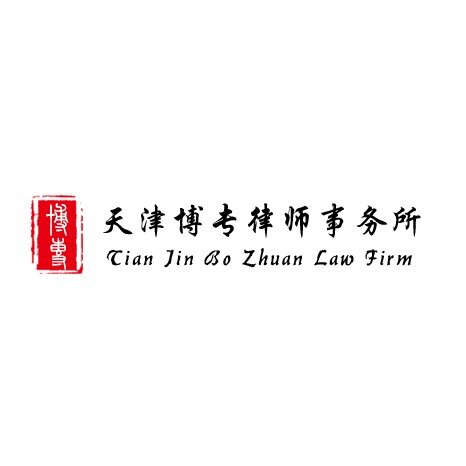Best Energy, Environment & ESG Lawyers in China
Share your needs with us, get contacted by law firms.
Free. Takes 2 min.
Or refine your search by selecting a city:
List of the best lawyers in China
About Energy, Environment & ESG Law in China
Energy, Environment, and ESG (Environmental, Social, and Governance) law in China encompasses a broad set of legal regulations and standards designed to promote sustainable development, protect the natural environment, and ensure responsible business conduct. As China transitions towards greener energy and more sustainable industries, the legal landscape continues to evolve with increasing emphasis on environmental protection, carbon neutrality, renewable energy, and corporate social responsibility. These laws impact businesses in energy production, manufacturing, infrastructure, real estate, and numerous other sectors. Understanding these laws is crucial for compliance, risk management, and corporate reputation.
Why You May Need a Lawyer
There are several scenarios in China where individuals, businesses, or multinational organizations might require legal assistance in the field of Energy, Environment, and ESG:
- Navigating complex permit and licensing processes for new energy projects or industrial developments.
- Ensuring compliance with fast-changing environmental regulations, such as emission standards, waste management laws, or renewable energy requirements.
- Managing risks and liabilities following environmental incidents or regulatory investigations.
- Handling disputes with regulators or other parties over environmental impact assessments, remediation obligations, or resource usage rights.
- Integrating ESG criteria into corporate strategies and drafting necessary disclosures or sustainability reports.
- Supporting mergers and acquisitions with environmental due diligence.
- Advising on government incentives or penalties related to clean energy projects.
- Navigating reporting and compliance requirements for foreign-invested enterprises.
Legal expertise ensures proper interpretation of the law, avoids costly penalties, and helps companies achieve their sustainability goals.
Local Laws Overview
China has introduced numerous laws and regulations that impact energy production, environmental protection, and corporate governance. Some key legal frameworks and regulatory measures include:
- Environmental Protection Law of the People’s Republic of China: The foundational law setting the country’s environmental legal requirements, including pollution prevention, emissions control, restoration responsibilities, and penalties for non-compliance.
- Air Pollution Prevention and Control Law: Sets stricter air quality standards and controls for industrial emissions across multiple sectors.
- Water and Soil Pollution Prevention Laws: Address contamination and remediation obligations for businesses impacting water bodies and land resources.
- Renewable Energy Law: Encourages development and integration of wind, solar, biomass, and other clean energy sources, with targets for renewable energy in power generation.
- Company Law and Securities Law Amendments: Require large companies, especially listed entities, to disclose key ESG activities, risks, and performance.
- Carbon Trading and Neutrality Policies: Including the national emissions trading scheme and carbon peaking/neutrality targets as part of China’s response to climate change.
Regulatory authorities regularly update these laws, introduce sector-specific standards, and enforce compliance through fines, shutdowns, or even criminal liability for severe violations.
Frequently Asked Questions
What is ESG and why is it important in China?
ESG stands for Environmental, Social, and Governance. In China, it relates to how companies manage their impact on the environment, treat employees and communities, and ensure responsible management. ESG is increasingly important due to investor requirements, government policies, and public expectations.
What are the main environmental regulations companies face in China?
Key regulations cover air, water, and soil pollution, waste management, chemical safety, emissions control, and energy efficiency. Companies must comply with both national and local standards and often need permits or environmental impact assessments before starting operations.
Are there penalties for violating environmental laws in China?
Yes. Penalties include fines, orders to suspend or shut down operations, public exposure of violations, civil or administrative liability, and, in severe cases, criminal responsibility for company managers.
How does China’s carbon trading system work?
China operates a national carbon emissions trading scheme, where businesses in certain sectors must report emissions and buy or sell carbon allowances to meet government-set limits. The program is expanding and aims to support China’s carbon neutrality goals.
Do foreign companies in China have to follow ESG and environmental laws?
Absolutely. Foreign-invested enterprises are subject to the same laws and regulations as domestic companies and must comply with all relevant environmental, energy, and ESG requirements.
What permits are needed for energy or industrial projects?
Permits vary according to the project but often include approvals for land use, business registration, environmental impact assessment, emissions control, energy consumption, and, in some cases, social responsibility disclosures.
What should a company do if faced with environmental enforcement action?
Companies should act quickly to understand the inspection findings, communicate with authorities, and consult legal counsel to navigate investigation procedures, mitigate penalties, and, if appropriate, file administrative appeals or negotiate settlements.
Are there government incentives for renewable energy projects?
Yes. China offers various subsidies, preferential treatment, and financial incentives for renewable energy projects, though these are subject to frequent adjustments and eligibility requirements.
How does ESG reporting work in China?
Major public companies are required to publish annual ESG or sustainability reports in accordance with guidelines issued by regulators and stock exchanges. Private companies may also choose to report to attract investors or improve their reputation.
Can individuals raise complaints about environmental harm?
Yes. Citizens can file complaints with local environmental authorities or use public interest litigation mechanisms to address environmental violations that harm public welfare.
Additional Resources
There are several resources available for those seeking information or assistance related to energy, environment, and ESG law in China:
- Ministry of Ecology and Environment of the People’s Republic of China (MEE) - The main regulatory body for environmental protection.
- National Energy Administration (NEA) - Oversees energy industry policy and regulation, including renewable energy initiatives.
- China Securities Regulatory Commission (CSRC) - Issues guidelines on ESG disclosures for listed companies.
- Local Environmental Protection Bureaus - Handle permits, enforcement, and public complaints at provincial and municipal levels.
- China Legal Information Network - Provides access to current legal texts and updates.
- Industry associations and international organizations focusing on sustainable development and corporate responsibility.
Next Steps
If you need legal assistance in the area of Energy, Environment, or ESG in China, consider taking the following steps:
- Identify the specific area where you need help, such as compliance, permitting, due diligence, enforcement action, or ESG reporting.
- Gather all relevant documents, permits, communication with regulators, and internal policies before consulting a lawyer.
- Seek out a lawyer or law firm with proven expertise in Chinese energy, environmental, or ESG law, especially for complex or high-value projects.
- Consider consulting both legal and technical experts, as many cases require multidisciplinary teams.
- Keep informed about legal updates and industry best practices to ensure ongoing compliance.
Taking early and proactive legal advice can help mitigate risks, ensure compliance, and support your sustainability and business goals in China’s dynamic regulatory environment.
Lawzana helps you find the best lawyers and law firms in China through a curated and pre-screened list of qualified legal professionals. Our platform offers rankings and detailed profiles of attorneys and law firms, allowing you to compare based on practice areas, including Energy, Environment & ESG, experience, and client feedback.
Each profile includes a description of the firm's areas of practice, client reviews, team members and partners, year of establishment, spoken languages, office locations, contact information, social media presence, and any published articles or resources. Most firms on our platform speak English and are experienced in both local and international legal matters.
Get a quote from top-rated law firms in China — quickly, securely, and without unnecessary hassle.
Disclaimer:
The information provided on this page is for general informational purposes only and does not constitute legal advice. While we strive to ensure the accuracy and relevance of the content, legal information may change over time, and interpretations of the law can vary. You should always consult with a qualified legal professional for advice specific to your situation.
We disclaim all liability for actions taken or not taken based on the content of this page. If you believe any information is incorrect or outdated, please contact us, and we will review and update it where appropriate.
Browse energy, environment & esg law firms by service in China
China Attorneys in related practice areas.
Browse energy, environment & esg law firms by city in China
Refine your search by selecting a city.
















